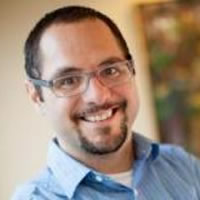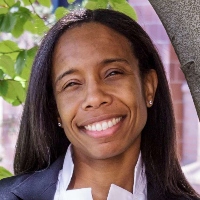2022 Faculty Seminar: Faiths and Ferocity
Genocide Studies and Interreligious Studies: Comparative Pedagogical and Research Approaches
July 2022
The ICJS inaugural Faculty Seminar brought together scholars working in universities and seminaries who research and/or teach in Interreligious Studies or Genocide Studies. We examined encounters between these two areas of study and considered how methodological approaches in both fields can challenge and enrich one another in our teaching and scholarship.
As interreligious studies programs emerge in seminaries and in U.S. institutions of higher learning, there has been a concerted effort by scholars in a variety of disciplines to define this new field. These programs include courses in the general humanities, as well as in peace and violence prevention programs. In addition to scholars of religions, political scientists, philosophers, sociologists, historians, ethnicists, psychologists, anthropologists, among others have been trying to understand the complicated role of religion in both fomenting violence as well as bringing about reconciliation. An important area of study, in this regard, is genocide studies, which is also a complex, mulitdisciplianary field of study.
By bringing these two areas of study together in this seminar, scholars in both fields of study opened up new questions in their respective scholarly inquiries, as well as explore new pedagogical approaches toward addressing violence and reconciliation in interreligious encounters.
This program was made possible with funds from the Kathryn Kelley Hoskins Memorial Fund at ICJS
Illustration credit: “And where can I turn to if it’s my turn?” by Sheila Lefebvre (6th grader, 1994), Remember.org
Instructors
Benjamin E. Sax, Ph.D.
ICJS Jewish Scholar
 Dr. Sax is an experienced professor, university administrator, scholar, award-winning teacher, public speaker, and practitioner and facilitator of interreligious dialogue. He was director of the Malcolm and Diane Rosenberg Program in Judaic Studies and the founding faculty principal at the West Ambler Johnston Residential College at Virginia Tech in Blacksburg, Virginia. Dr. Sax holds degrees from the University of Massachusetts, Amherst (B.A., Social Thought and Political Economy), the Hebrew University of Jerusalem (M.A., Jewish Thought), and the University of Chicago (Ph.D., History of Judaism). Dr. Sax has published on topics relating to Jewish philosophy, German-Jewish history and culture, Jewish-Christian relations, and interreligious dialogue. He co-chairs the Religion, Holocaust, and Genocide Unit at American Academy of Religion (AAR).
Dr. Sax is an experienced professor, university administrator, scholar, award-winning teacher, public speaker, and practitioner and facilitator of interreligious dialogue. He was director of the Malcolm and Diane Rosenberg Program in Judaic Studies and the founding faculty principal at the West Ambler Johnston Residential College at Virginia Tech in Blacksburg, Virginia. Dr. Sax holds degrees from the University of Massachusetts, Amherst (B.A., Social Thought and Political Economy), the Hebrew University of Jerusalem (M.A., Jewish Thought), and the University of Chicago (Ph.D., History of Judaism). Dr. Sax has published on topics relating to Jewish philosophy, German-Jewish history and culture, Jewish-Christian relations, and interreligious dialogue. He co-chairs the Religion, Holocaust, and Genocide Unit at American Academy of Religion (AAR).
Kate E. Temoney, Ph.D.
Associate Professor, Department of Religion, Montclair State University
 Dr. Temoney is the co-chair of the Religion, Holocaust, and Genocide Unit of the American Academy of Religion, as well as a member of the United States Holocaust Memorial Museum Committee on Ethics, Religion, and the Holocaust. She holds degrees from Wake Forest University (B.A., Psychology ), The College of William & Mary (M.Ed., Educational Policy, Planning, and Leadership), and Florida State University (M.A., Ph.D., Religion). Trained as a comparative religious ethicist, she teaches courses on Religious Ethics, the Holocaust, African Religions, Jewish Applied Ethics, Religions of the World, and Religion & Human Rights. Dr. Temoney’s international publications and presentations—in such places as Brazil, Cambodia, Poland, Belgium, Morocco, Canada, and Australia—address the intersections of religion, human rights, and mass atrocities.
Dr. Temoney is the co-chair of the Religion, Holocaust, and Genocide Unit of the American Academy of Religion, as well as a member of the United States Holocaust Memorial Museum Committee on Ethics, Religion, and the Holocaust. She holds degrees from Wake Forest University (B.A., Psychology ), The College of William & Mary (M.Ed., Educational Policy, Planning, and Leadership), and Florida State University (M.A., Ph.D., Religion). Trained as a comparative religious ethicist, she teaches courses on Religious Ethics, the Holocaust, African Religions, Jewish Applied Ethics, Religions of the World, and Religion & Human Rights. Dr. Temoney’s international publications and presentations—in such places as Brazil, Cambodia, Poland, Belgium, Morocco, Canada, and Australia—address the intersections of religion, human rights, and mass atrocities.